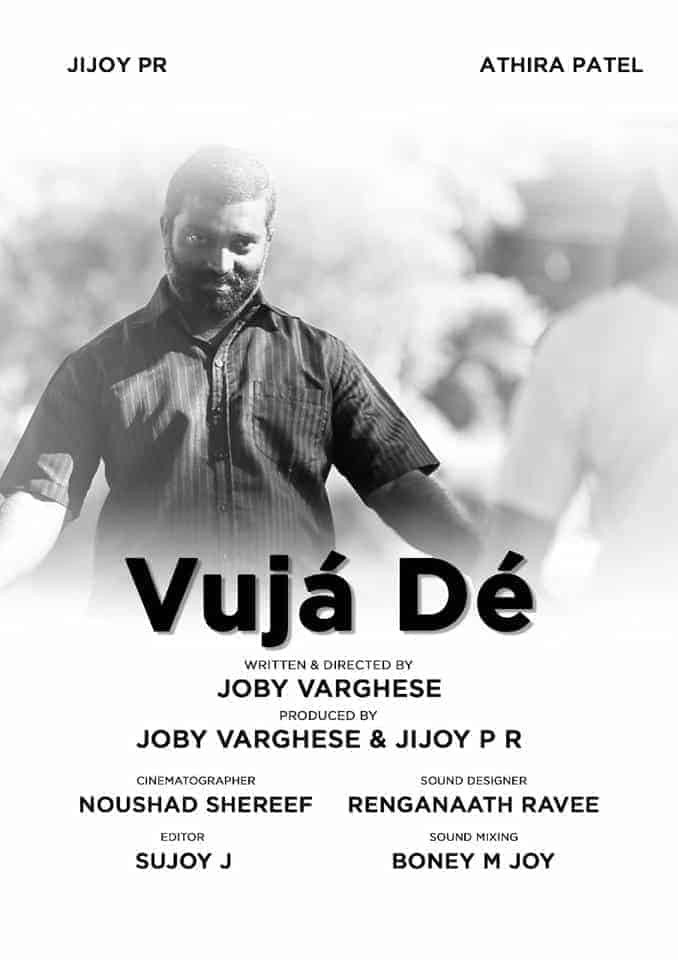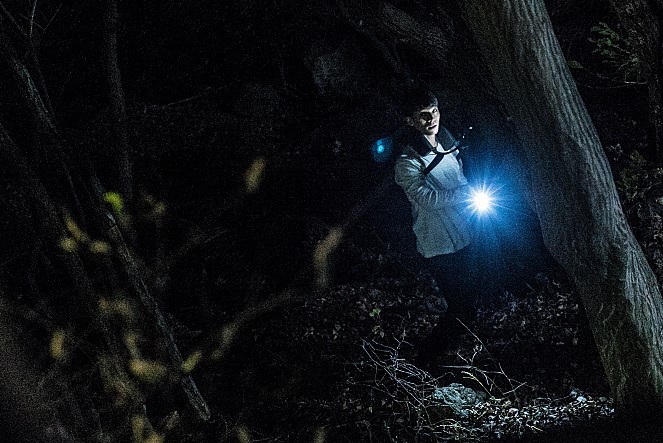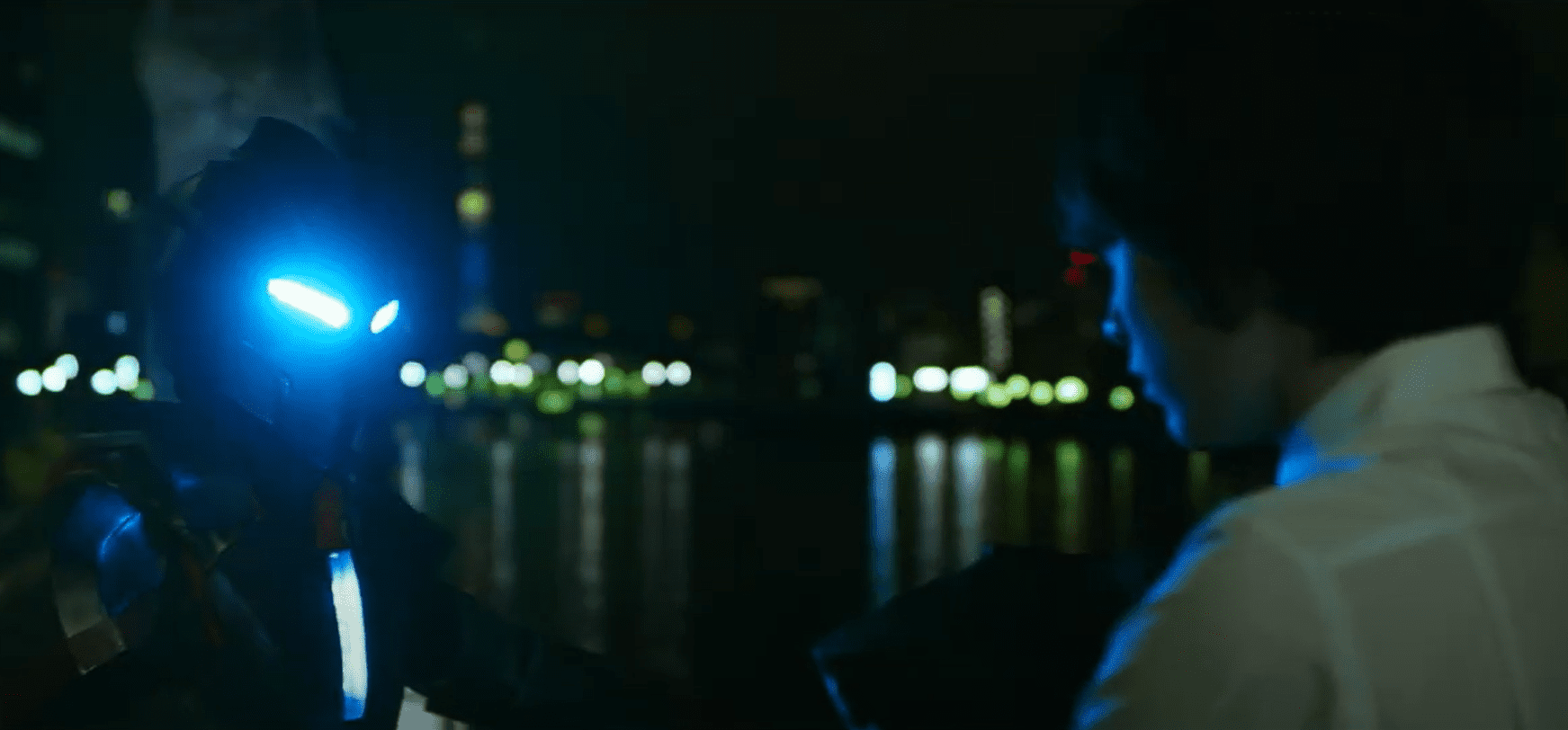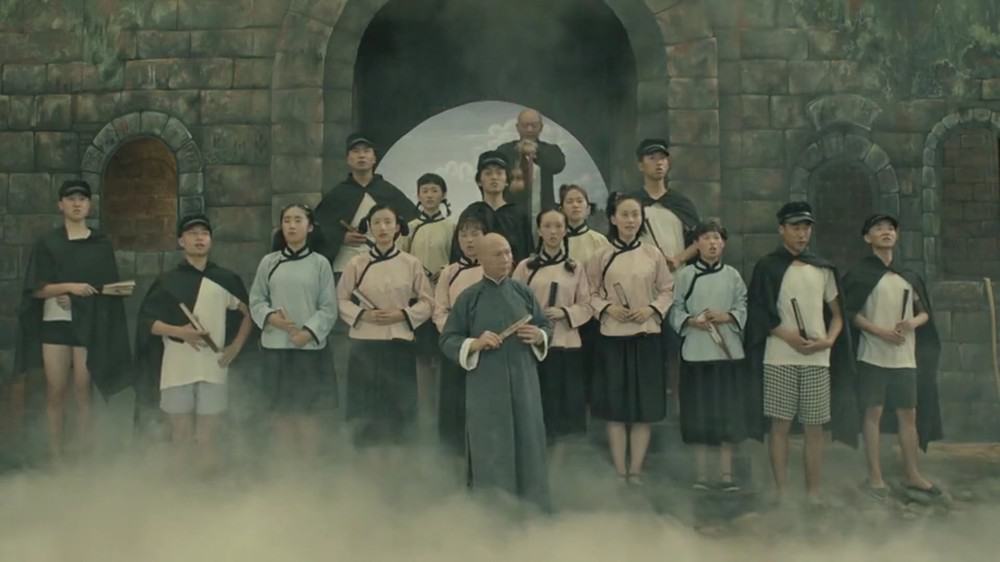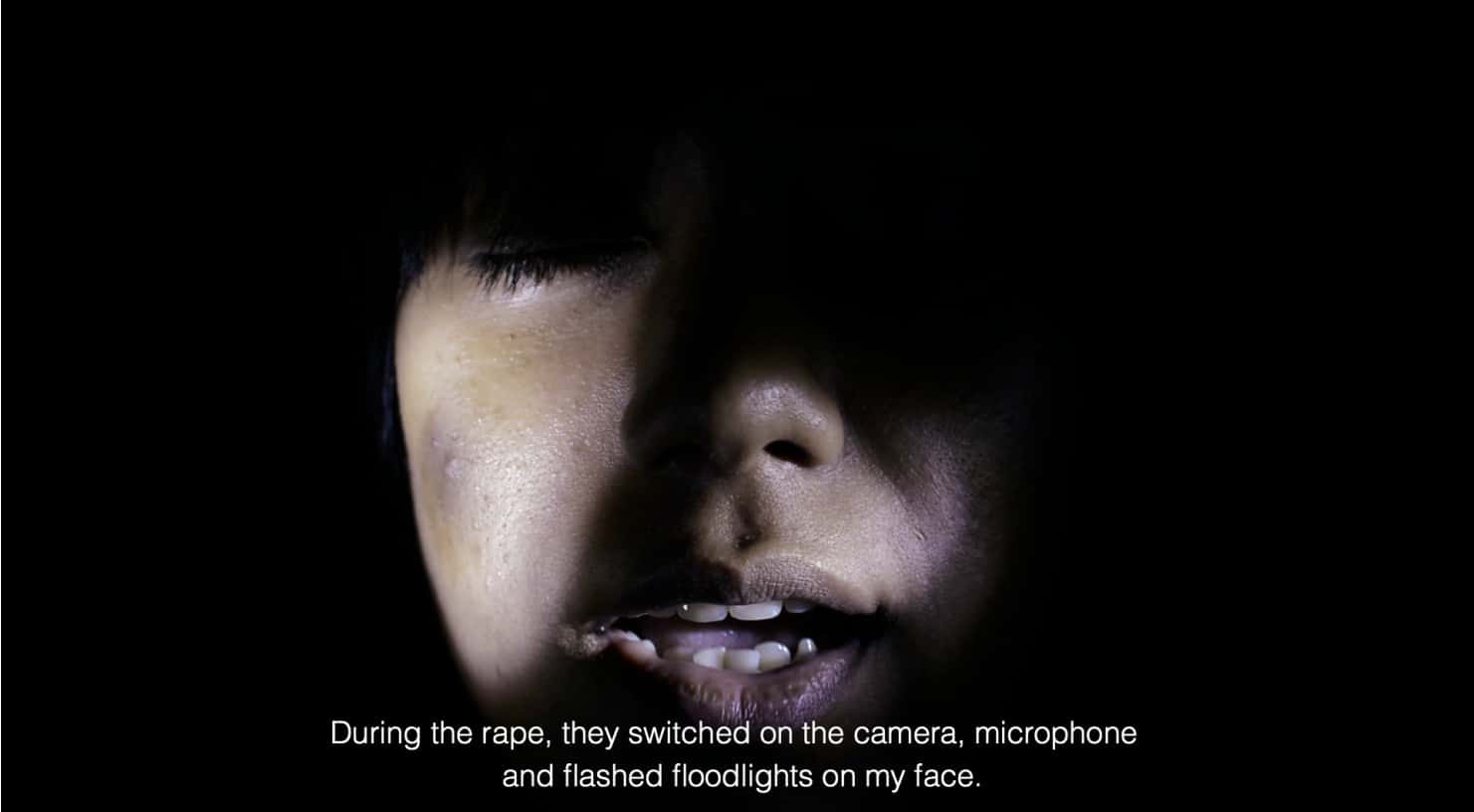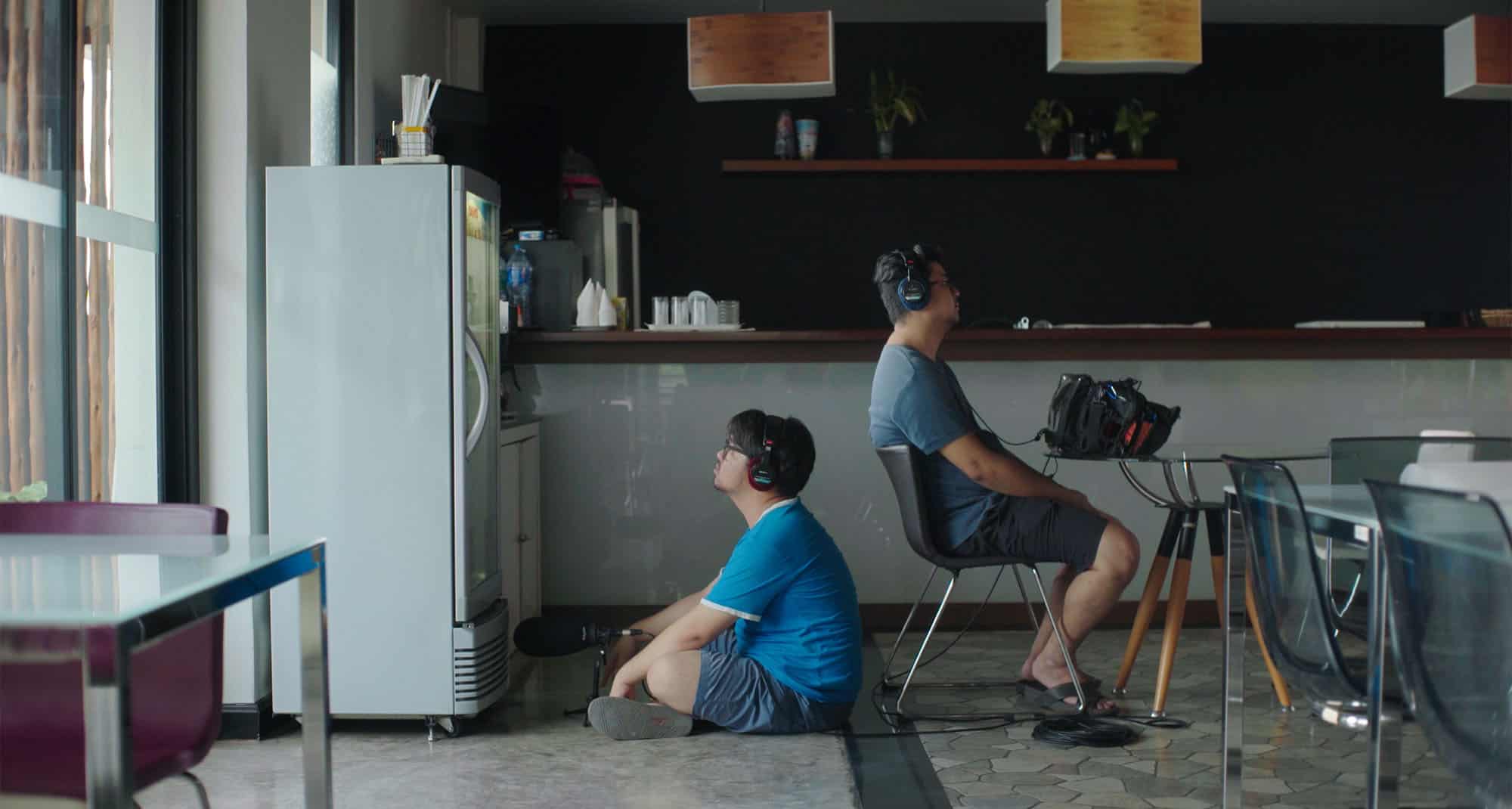Vuja De (2017) by Joby Varghese (17.40 minutes)
In a very interesting sequence of events, the biggest part of this film takes place inside the dream of a 13-year-old girl, who even realizes that what is taking place is actually a dream and not reality. As she is talking with her friends, she spots a man looking straight at her and approaches him. He informs her that she is her future husband, and has managed to enter her dream some decades later, when the two of them are both middle-aged, and (at that moment) are reading books from Gabriel Garcia Marquez. Soon, though, his intentions become apparent and the film takes a completely different direction.
Joby Varghese directs and pens a very interesting short, that deals with a number of paradoxes, as the concept of past and future, time travel and dream and reality. The black and white camera of Noushad Shereef during the dream sequences serves the film quite well, inducing it with a atmosphere that actually feels like a dream, while Sujoy Joseph's editing retains a nice enough pace, that keeps the reality and the dream sequences from becoming confusing. The only fault I found on the technical department is the sound, with the voices of the actors occasionally not being synchronized with the movement of their lips.
Jijoy Rajagopal as the husband does not need much time to show his prowess as an actor, with his initial, kind, and kind of condescending behaviour soon giving its place to something completely different, without any kind of loss in terms of performance. Athira Patel as the young student is also quite good as a doubting, disillusioned girl, with her chemistry with Rajagopal being one of the highlights of the film.
“Vuja De” is a more than hopeful debut from Joby Varghese, whom I could see shooting a philosophical drama, or even a thriller based on paradoxes quite soon.
Silent Barks of the Capital (2017) by Sharad Ananth and Sidharth Kumar (13.07)
The short revolves around a woman who is roaming the streets of New Delhi, searching for Oscar, her missing dog. Her search brings her to various places, as she eventually even resorts to the supernatural, particularly the Mother of 300 Dogs, for help.
Sharad Ananth and Sidharth Kumar had a distinct purpose of raising awareness regarding the practices against dogs in the city, particularly about violence towards them that even results to them being kidnapped, butchered and cooked. This message is presented through some disturbing images, but mostly though various pieces of sound footage, either from TV or radio, which I found working quite well in the general context of the film. The same applies to the fact that the characters almost never speak, while the equally fitting music induces the movie with a sense of nostalgia, which also derives from the flashbacks showing the protagonist with her dog.
Aanand Priya in the protagonist role is quite good in portraying her character's angst and sadness regarding her missing dog, in silent fashion.
The short shows much potential in combining different kind of footage, but the general feeling I got is that Sharad Amant's future lies in the documentary department, rather than fiction.


